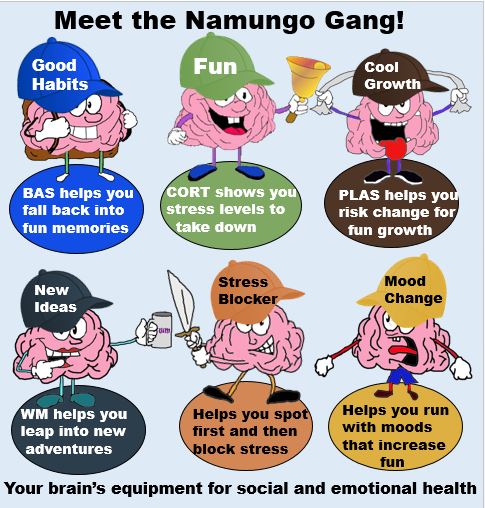Who would deny that we crave intelligent leaders to navigate critical challenges in 2020? And we know that stellar brainpower exists out there, among good people who see from diverse viewpoints. Never before did we need brainpower on the side of truth and compassion! And that poses key questions that call for another serious look at ethics as it relates to IQ.
Can people be considered genius without a stellar moral compass to guide actions such as integrity or kindness to others? Are swindlers enabled in our circles, under the guise of intelligence? In an age where horizons shift, leaders look past moral failures in favor of personal gain, and finer beginnings seem unattainable at times, where do ethics and character development fit into new beginnings?
Look into intuitive intelligence and you will see at its core, ethics and an ability to care for others deeply through service beyond self. That should inspire us, but not surprise us. Otherwise, why embrace honesty, lead with humility, practice kindness or walk humbly?

How can we increase ethical behavior toward and create goodwill among those who disagree with us? The opposite is war self-dealing, and violence which serves none of us!
We now know that each person is born with a unique mix of moral intelligence, and the brain strengthens our moral codes with each ethical act. We also know a person’s choices generate new dendrite brain cell connections for more of the same. Simply stated – what we practice daily is what we become mentally!
What may come as a surprise though is the brain’s proclivity to change itself observably to act ethically or corruptly, in our future dilemmas. For example, today’s actions to cheat on a test rewires our brain for cheating in financial or other practices tomorrow. Or slight conflicts of interest today, grow neuron pathways for the kind of greed that governs our contributions to a team tomorrow. Inequity that enters a circle with only one culture or one gender or one average age, strengthens brainpower for more of the same narrow-mindedness in the next meeting. Yikes! See the need for more diverse offerings in our circles? 
My original question though, is:
Can a person be a genius without showing ethical wisdom?
If ethical brainpower is valued as a central part of the intelligent brain, it’s time to revisit MacArthur’s criteria, that awarded several of 25 geniuses to highly unethical leaders in the past decade.
If, on the other hand, leaders can simply drop ethics out of the intelligence mix altogether, we all better run for cover in the next decade. It takes emotional and social health to ramp up ethical IQ.
Yes, IQ includes ethics! Yes, character can and should be taught and developed! Take Karl Rove, the 58 year old Fox news contributor, who won genius status from MacArthur for changes he led with a 50+1 strategy that micro-targeted votes for George Bush to win neighborhood ballots. If ethical IQ or intrapersonal intelligence had been factored into the gauge to identify geniuses – would Rove have won genius awards?
Or check out Ayman al-Zawahiri, the Egyptian surgeon, who won 23rd place out of 25 geniuses showcased in the decade’s genius level. You likely remember, he became bin Laden’s confidant, who spear-headed the 9/11 attacks. Is that genius material or gross stupidity? How we decide whether to include or exclude ethical leadership into intelligent leadership will impact what the world looks for, expects and enables in innovative leaders.
Should high performing minds of the future, be held to ethical standards that lead a finer future? Or should brilliant change agents, be listed among minds that promote violence or steal for personal gain? That choice for or against ethics as key to intelligence, will impact leaders who guide innovation across differences for our grandchildren’s era.
Finally, would you agree that when we neglect to cultivate the teaching and development of ethical character, we presume falsely that ethics and character do not hold any place in IQ or mental development? In reality, research such as multiple intelligences support the opposite. Ethical and character development hold as high a place in brains as science, math, the arts, athletics or any other intelligences.
Where to start if we believe ethics is central to genius leadership? Perhaps more practical and brain based tools will help us teach and model ethical, character and emotional health!
What’s your take on fostering more ethical leaders in the coming year? What if we started by phoning our senators and government leaders at 202- 224- 3121 to ask for Justice Roberts to facilitate a fair trial related to impeachment charges so that truth would emerge from facts presented fairly?
Accuracy problems arise if we view a genius in a narrow or outmoded way. Let’s say a person builds a brilliantly designed bomb. Most would agree, that shows high math IQ. But what if that person drops the bomb on innocent children? In this case, ethical IQ is low or missing in one’s intrapersonal mental domain.
Simply stated, a wider view of genius here would show low ethical IQ intrapersonally in this situation, as well as high (or genius) IQ in the logical and mathematical domain. This challenge boils down to the challenge that change presents in 2020.
Believe it or not we are each part of the 2020 change that will leave us benefiting or not. See how change raises or lowers your intrapersonal IQ in this post.
We certainly want our leaders to help us maintain truth as a nation. And we can contact senators at 1-202-224-3121 to help that happen. We can also impact character change in our own lives in ways that help us to create a more caring and ethical world.
This leads to a personal question for each of us: How do we facilitate higher capabilities across all eight intelligences to attain more genius status with an ethical core? What do you think?
YOUR TURN! Join our Brain Based Circles! Would love to meet you at any of the following!
Brain Leaders and Learners Blog
Mita Brain Center Facebook
efweber on Pinterest
@ellenfweber on Twitter
ellenfweber on Instagram
Ellen Weber on Google+
Ellen Weber on LinkedIn
Created by Ellen Weber, Brain Based Tasks for Growth Mindset




Interesting article , I am going to spend more time learning about this topic
No reason why genius cannot include ethics.
Ellen, as usual, very thought provoking. If I just look at the word ‘genius’, than I think of that as morally or ethically neutral – to me, it just implies a level of intelligence/cognitive ability, not anything else – including the ability to do execute upon any genius idea the person has – simply innate intellectual ability. Now, leader is a loaded word – a good leader must have an ethical/moral compass, a bad one, not. For instance, from a pure ‘denotation’, Hitler was a leader (not sure about the genius part), but he was smart enough to use the circumstances to his advantage and lead.
I think of Kant’s ‘Divine Ought” – “Ought” genius leaders have moral, ethical compasses used for good (cuz perhaps they do but use it for ill), yes, but then who ensures the ‘ought’? My fear is that it would be governments and we know they are lousy at doing that….
Great question, just not sure there is a great answer except for the trust in human nature and checks and balances to power.
thank you! deb
Hi Ellen et al, Fascinating conversation. When I mentioned brainpower, I was referring to intelligence, insight, creative intelligence – any of those things that we usually associate with “genius”. I would say that ethics is not a characteristic people generally connect with genius, which is one reason why your post is so interesting. As far as your definition of ethics being defined as what benefits the community, I would say that definition is insufficient. Again, the question is – what is beneficial? Clearly, there can be differences of opinion on that point, as we can easily see here in the U.S. on any number of issues – right to life, gun control and immigration, just to name a few of the more obvious ones.
Thanks Jessica, you bring up a good point about what influences us and what we mimic around us.
New research on mirror neurons offers some interesting facts about how people are impacted deeply what those around us, and the brain comes with equipment to make that happen in spite of apparent persistence.
So much so that we can brain wire entire nations for unethical behavior over time, according to Dr. Doidge in the book, “The Brain that Changes Itself.”
Would you agree that’s a good case for facilitating strategies to finer morals at work?
Bin Laden spear-headed the 9/11 attacks? I’d add that a capacity for not believing everything the television tells you ought to be factored into the equation. A strong resistance to brainwashing would probably lead to a higher incidence of ethical behavior.
Wow – You make an interesting reference to “brainpower” here, and I was wondering Brad how you are defining such?
Great questions and thanks for raising these: “What constitutes ethics – who determines what is ethical?”
Would you agree that the ethics of any diverse culture, or moral principals are those that benefit a wider community?
In ethics classes I teach in MBA programs, we have no trouble coming up with shared values together, for instance. Values such as respect, generosity, truthfulness, kindness, forgiveness, acceptance and so on. Shared values may vary slightly from group to group – but mostly remain similar.
Ethics appear easier to agree upon, and harder to live on a daily basis. In our new MBA leadership class – and in the text – we’ll be suggesting some coll brainpowered tools to foster ethics at leadership levels.
One such tool, be be an approach to questions assumptions — just as we are doing here. Many assume you can be a genius and lack ethics. Others suggest this is not possible – given new facts about the centrality of ethical or intrapersonal intelligence.
It’s especially cool that each ethical act we do, creates new neuron pathways for more of the same. Thoughts?
Interesting point Susan, and thanks for stopping by.
When you state that: “Whether labeled or identified as a genius or not in the absence of ethics very intelligent people can do extraordinarily awful things,” did you consider that intrapersonal intelligence – which includes ethics is as much part of the brain’s equipment as it mathematics, or linguistic intelligence?
That said, would you agree that what we call genius should represent the full requisite of intelligences, including ethical IQ? You?
You build a great case for taking another look at internal vs. external motivation, WHGM. Thanks for your interesting slant: “The question is if the genius mind needs to equipped with the compass, or that this guidance can come from outside.”
I was a little less clear about your meaning in the statement” The genius is no less if the ethical equipment is not available in the same body that excels at something.”
Can you elaborate a bit more? For instance, do you have an example of how: “It merely confirms the need for humility, critical self-awareness, and the furthering of interpersonal cooperation.”
Thanks for helping us to hold this keen topic up to the rainbow for another look together!
Thanks Dan, as you suggest too, it seems to me that we should be asking the question and making new kinds of directions for the coming era. Once again, it helps to know specific criteria used to determine what is genius, and we may want to discuss, how ethics fits into the IQ mix.
That said, brainpower we know about today is far more specific than what we once knew. Certain parts of the brain relate specific to ethics and we now know how.
Let’s all challenge current systems to ensure that ethical behavior is showcased more in leadership models we adhere to. That may be a first step toward innovative growth. What do you think?
Unfortunately I think the answer is yes. Whether labeled or identified as a genius or not in the absence of ethics very intelligent people can do extraordinarily awful things. The question for me is whether or not we let them get away with it. There is no leader without followers. If we choose to follow the lead of someone who enrolls us with their genius yet demonstrates questionable ethics we are responsible for the consequences.
The actions of anyone are better off guided by a ethical or moral compass (although potentially unclear who’s compass @bradshorr). The question is if the genius mind needs to equipped with the compass, or that this guidance can come from outside. The genius is no less if the ethical equipment is not available in the same body that excels at something. It merely confirms the need for humility, critical self-awareness, and the furthering of interpersonal cooperation.
Hi Ellen, Everyone needs ethics: perhaps a genius, measured purely in terms of brainpower, needs ethics more than the average person because his/her actions stand to have a greater and more far reaching impact. Of course the problematic issue is what constitutes ethics – who determines what is ethical?
You ask a great and discerning question, Ellen. Via Polly LaBarre’s recent post at the MIX, I was just reading Matt Taibbi’s post on Goldman Sachs from last April http://www.rollingstone.com/politics/news/the-great-american-bubble-machine-20100405). Surely it could be said that some of the highly placed people Taibbi mentions could also be regarded as having a certain kind of genius but in the absence of ethical conduct why would we reward these people even with notoriety? Sounds like many simply ought to be in jail. Is there a distinction to be made here between cleverness, scheming, or manipulation — and genius? It seemed to me from reading the descriptions of the twenty-five people on the link you cited that such negative qualities snuck into the criteria, undermining the real qualities of genius that, at least in my book, represent a whole different kind of integrating social contribution. Structurally similar to the confusion between authority and leadership, the confusion between cleverness and true genius distorts and damages the real thing, and creates, as you say, more mental pathways for the future in all the wrong places. How destructive.